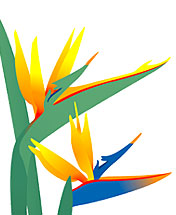| The Thinking Heart:
An Interview with Paul Pearsall
by Hal Bennett and Susan Sparrow
Essay Excerpt:
For centuries, scientists, philosophers, physicians, and poets
have argued about the function of the heart. Is its sole purpose
to move blood throughout our bodies? Or does it do something more?
Theologians and doctors of ancient times saw the heart as the
"thinking organ" of the body and the dwelling place
of the soul. In recent years, particularly since the success of
heart transplants, evidence has surfaced that perhaps these early
inklings were more accurate than we thought.
Paul Pearsall is one of many researchers who has observed that
transplant patients who receive an organ from another person's
body may also receive much more -- what he calls their "cellular
memories." Recipients have reported inheriting everything
from the donor's food cravings to knowledge about his murderer
-- information that in one case led to the killer's arrest. As
a result of these and other researchers' findings, Pearsall is
now convinced that the heart has its own form of intelligence,
that we are only rarely aware of in modern life. In his view,
the heart processes information about the body and the outside
world through an "info-energetic code" -- a profuse
network of blood vessels and cells that serves not only as our
circulatory system but as an energy information gathering and
distribution system, much like a complex telephone network. What's
more, he believes that the soul, at least in part, is a set of
cellular memories that is carried largely by our hearts. Predictably,
such views have met with opposition in the medical world. But
in his view, the implications of his theories -- that the heart
"thinks," cells remember, and communication can therefore
transcend the boundaries of time and space -- are too important
for him to dismiss.
"I see myself as a bridge," Pearsall explains. "We
need the brain, and we need these brilliant scientists who are
bringing their brain power to the world. But we want them to have
heart, and that's what drives me."
Bennett/Sparrow: This is a controversial subject in scientific
circles, as you surely know. I suspect that you've had to confront
a lot of criticism from your peers for carrying this banner.
Pearsall: The Heart's Code is not my theory, of course. I've
drawn most of what's in the book from scientists who've been researching
it. But the heart as a sentient organ has always interested me.
It's a crucial hypothesis!
Bennett/Sparrow: I think we may be the first civilization in
history that hasn't believed that the heart has an important role
in our mental, emotional, and spiritual processes. Why do you
think we've taken this position?
Pearsall: The short answer is that we're a brain culture as distinct
from a heart culture. We want to quantify everything. If we can't
weigh it and measure it objectively, it simply doesn't exist for
us. The Hawaiians have always believed that it is through the
heart that we know the truth. For them, the heart is as sentient
as the brain. We find this same belief with the Hopi Indians in
New Mexico, and with the Chinese; within many cultures the heart
chakra, is the key to healing. My kahuna friends here in Hawaii
say to me, "What took you so long? We've known this for centuries!"
ABOUT THE AUTHORS
Hal Zina Bennett and Susan J. Sparrow are a husband-wife team
who collaborate both as authors and as creative writing teachers
and coaches. Together they have over 30 successful books, both
fiction and non-fiction. Hal's The Well Body Book is legendary,
since it helped to launch the holistic health movement. Susan
and Hal live with two small dogs in a remote village on a lake
in Northern California. Their books together include Follow Your
Bliss, Spirit Guides, and Write From the Heart. Hal's newest book,
Spirit Animals and the Wheel of Life, explores Nature-based spirituality
as a way of healing our relationships with our planet, ourselves
and each other. Susan is presently working on a new book about
women and their perspectives on marriage. Susan and Hal are co-founders
of Tenacity Press, an independent book publisher, and Write From
the Heart Seminars.
|

